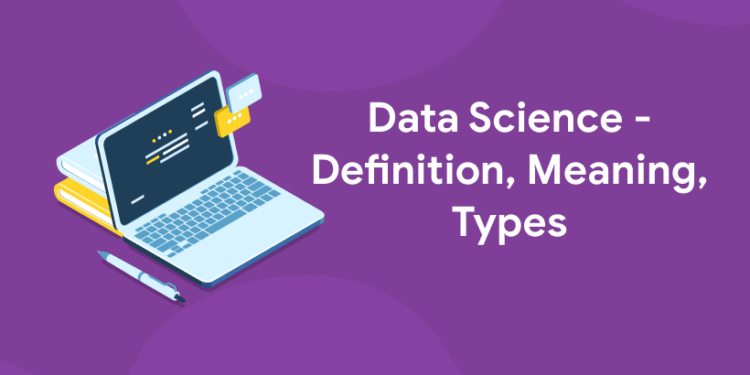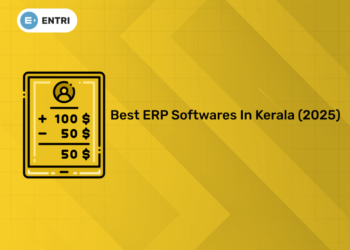Table of Contents
Data science has become one of the most sought-after job skills of our time, with organizations of all sizes increasingly looking to hire professionals with an understanding of how data can be used to help solve complex problems and improve organizational performance. But with data science being such a wide-ranging term, it can be difficult to get your head around what makes someone a data scientist, let alone what different types of data scientists there are in the workforce today. The good news is that, just like any other role in any other industry, there are different types of data scientists and they have very specific roles and responsibilities within the organization.
Get the latest update on data science in the Entri app
Analytical
This type of data scientist uses their skills and expertise to collect, summarize, and explore any available data sets. They have a background in data analysis and mathematical modeling. Their work usually involves answering specific questions or solving particular problems—like predicting future sales by analyzing past trends, for example. These individuals are typically employed by large corporations, universities, or research institutes. While they’re technically still considered data scientists, they tend to be more focused on applying existing analytical methods than creating new ones. Some people also refer to them as data analysts or business analysts.
Business Intelligence (BI)
1: Which of the following algorithms is most suitable for classification tasks?
BI professionals perform their duties using primary data that comes from systems within their organization. In other words, they have internal data and use it to develop reports and analyze trends. They also consult with key decision-makers in order to provide them with appropriate data at just-in-time moments. By utilizing various techniques, BI specialists are able to cleanse, transform, combine and structure data so that it can be readily available for reporting by users. The most common software for manipulating business intelligence data is SPSS or SAS.
 Start Coding Today! Enroll Now with Easy EMI Options.
Start Coding Today! Enroll Now with Easy EMI Options. 

Equip yourself with in-demand skills to land top-tier roles in the data-driven world.
Start Learning Now with EMI OptionsData Engineer
A data engineer might be called upon to work with a more traditional, structured set of data, like information collected from surveys or financial transactions. But they might also need to create and manage a Hadoop cluster in order to process big data. The best way to differentiate between different kinds of engineers is by breaking down their area of responsibility: where does your team sit in relation to your product? Are you working on backend infrastructure that won’t ever be seen by users or are you working on an application that interacts directly with customers? This will give you a sense for what kind of engineering skills (and maybe even educational background) you’ll need to succeed.
Are you aspiring for a booming career in IT? If YES, then dive in |
||
Full Stack Developer Course |
Python Programming Course |
Data Science and Machine Learning Course |
Data Scientist
A data scientist takes raw data and analyzes it in order to create insights. These insights are used for improving products or processes and (eventually) making better decisions. A master data scientist can understand how to separate signal from noise, find patterns, predict trends, identify meaningful correlations, and more. A self-proclaimed data scientist who can do none of these things is still practicing data science—just not very effectively! Luckily, there are specific skills that define what separates a great data scientist from everyone else. When you know what those skills are, you’ll be able to tell whether your company has an effective data scientist on staff or if you’re going to need to hire one yourself.
Machine Learning Specialist
For companies in need of machine learning experts, there are many different paths they can take. One thing is certain, though: The need for specialized data scientists continues to grow, and if you’re a data scientist without any advanced degrees, specializing in an area like machine learning can open up doors to exciting career opportunities. If you already have an advanced degree and also enjoy developing algorithms that are used for automatic decision-making and classification purposes, it’s worth looking into becoming a machine learning specialist. You will usually work with software developers who develop company products or services that rely on deep learning algorithms and artificial intelligence (AI). Your job will be to make sure these AI-enabled products do what they’re intended to do.
 Start Coding Today! Enroll Now with Easy EMI Options.
Start Coding Today! Enroll Now with Easy EMI Options. 

Equip yourself with in-demand skills to land top-tier roles in the data-driven world.
Start Learning Now with EMI OptionsPredictive Modeler
A predictive modeler is a member of a growing field within big data known as modeling and analytics. While there are many definitions for a predictive modeler, one thing is certain: anyone with an extensive background in math and science who uses complex algorithms to make predictions about events or behaviors based on information from large data sets can be considered a predictive modeler. Depending on their specific tasks, they may also be called statisticians, analysts, mathematicians, or pattern searchers. Regardless of what you call them, people with these skills are in high demand. They’re being hired by companies of all sizes and work in both academia and industry. One important way that a predictive modeler differs from other types of data scientists is that he/she spends much more time identifying trends than creating models. That’s because creating accurate models takes a lot of trial-and-error experimentation.
get certified in data science and ml ! join now !
Statistician
A statistician analyzes, organizes and interprets numerical data. While a computer can crunch numbers faster than any human being, statisticians still use it to confirm mathematical models or generate new ones based on statistical theories. If a statistician works in an academic environment, he or she may be called a professor. Some who work for government agencies and research institutes may be called an analyst or mathematicians. The profession is changing rapidly with advancements in technology that enable massive amounts of data to be processed quickly and efficiently by computers. A statistician who is versed in emerging technologies like machine learning could even be dubbed a data scientist.
This title is gaining popularity as businesses realize that companies need someone to help them extract useful information from their mountains of data. Statisticians are also becoming more involved in non-traditional areas such as sports analytics and marketing analysis. These roles typically require more business savvy and programming skills than pure statistics knowledge, but it’s still important for statisticians to understand how all types of businesses collect, analyze and present their data so they can communicate effectively with clients across industries. Even though you might not hear statistician as much as you used to, you’ll likely hear about another type soon: data scientists.
Join in our latest coding courses in the Entri app
Text Analytics Professional
When it comes to data science, one person’s knowledge can be another person’s black box. And when it comes to text analytics and natural language processing, things get even more complicated. While many people may have a hard time articulating their ideas about math and machine learning, for example, most folks would have no problem talking about what they do for a living. Put these two elements together, and you have a great description for a data scientist specializing in natural language processing: People with strong math skills who are comfortable extracting meaning from human language—and who know how to make algorithms do that same task. As companies grow increasingly reliant on both online customer feedback (reviews) and sales automation (chatbots), demand for NLP specialists will only increase. If you are interested to learn new coding skills, the Entri app will help you to acquire them very easily. Entri app is following a structural study plan so that the students can learn very easily. If you don’t have a coding background, it won’t be any problem. You can download the Entri app from the google play store and enroll in your favorite course.










